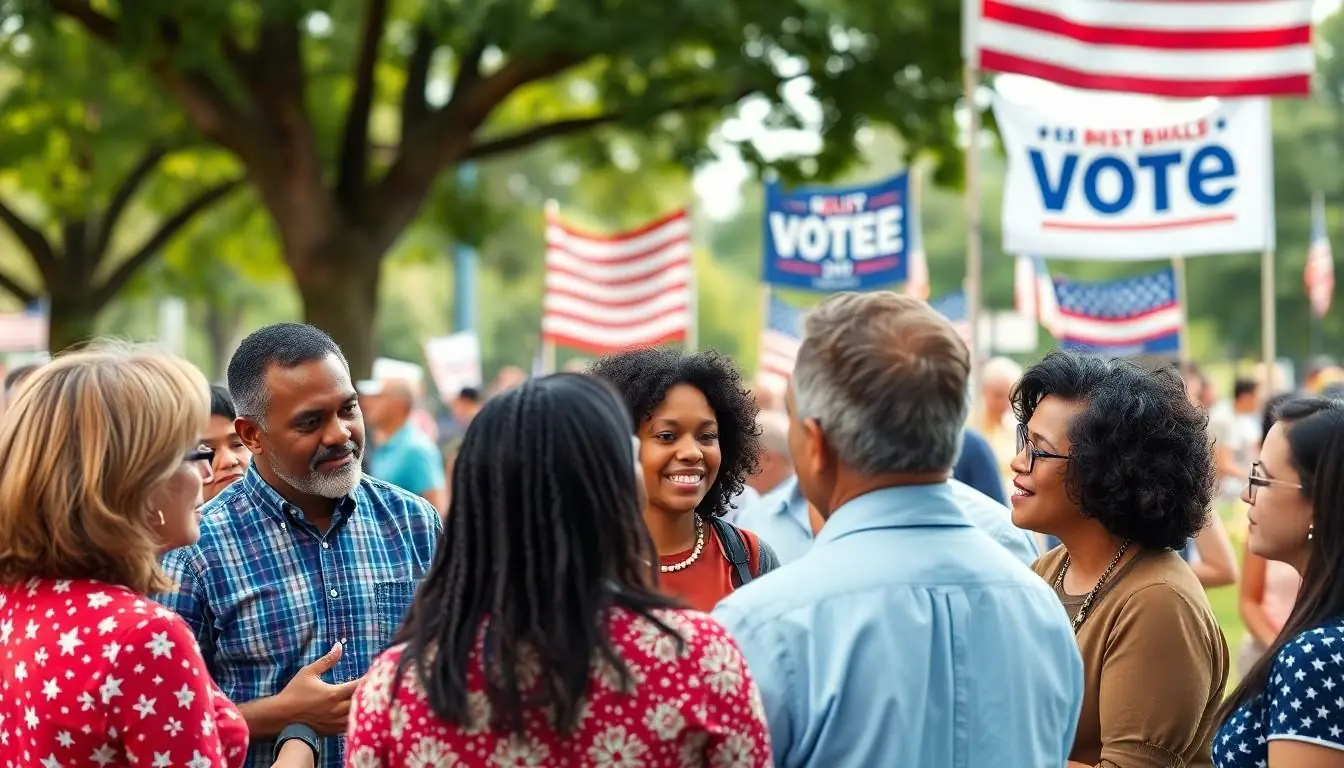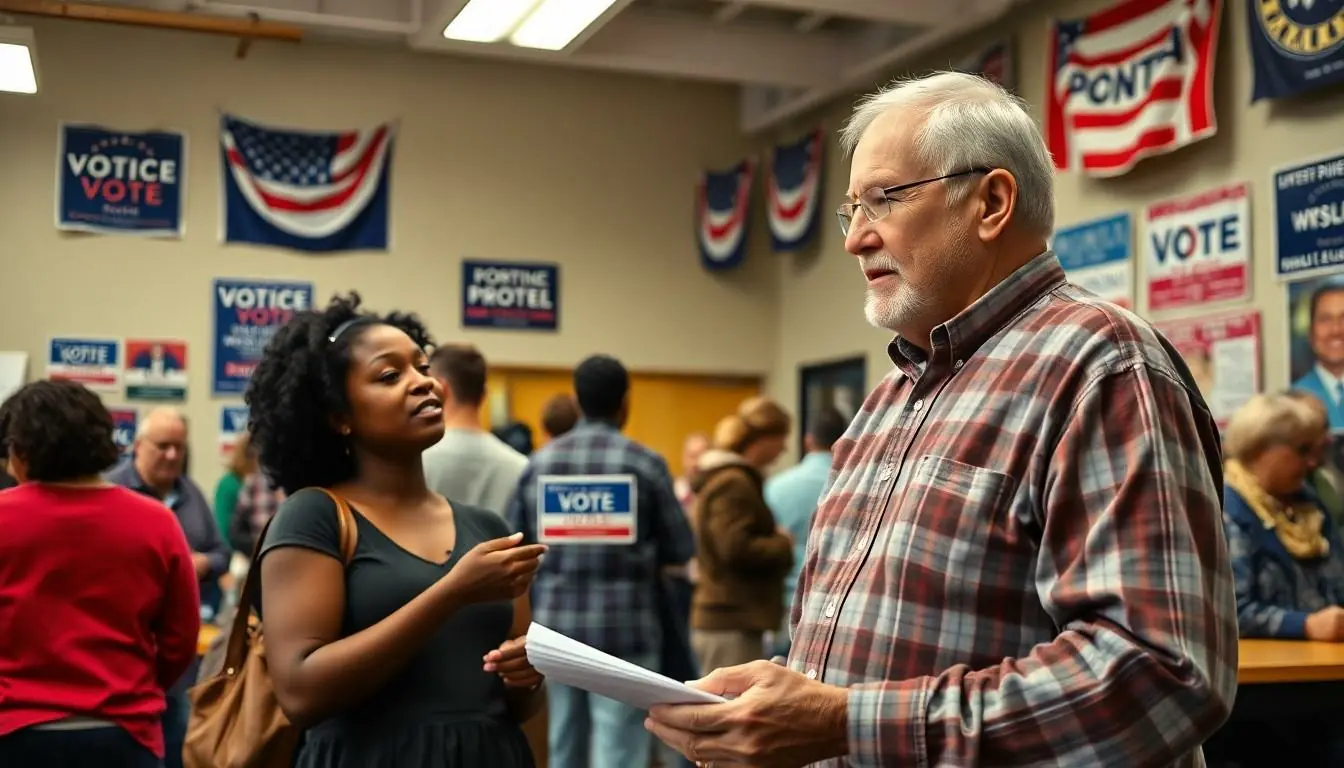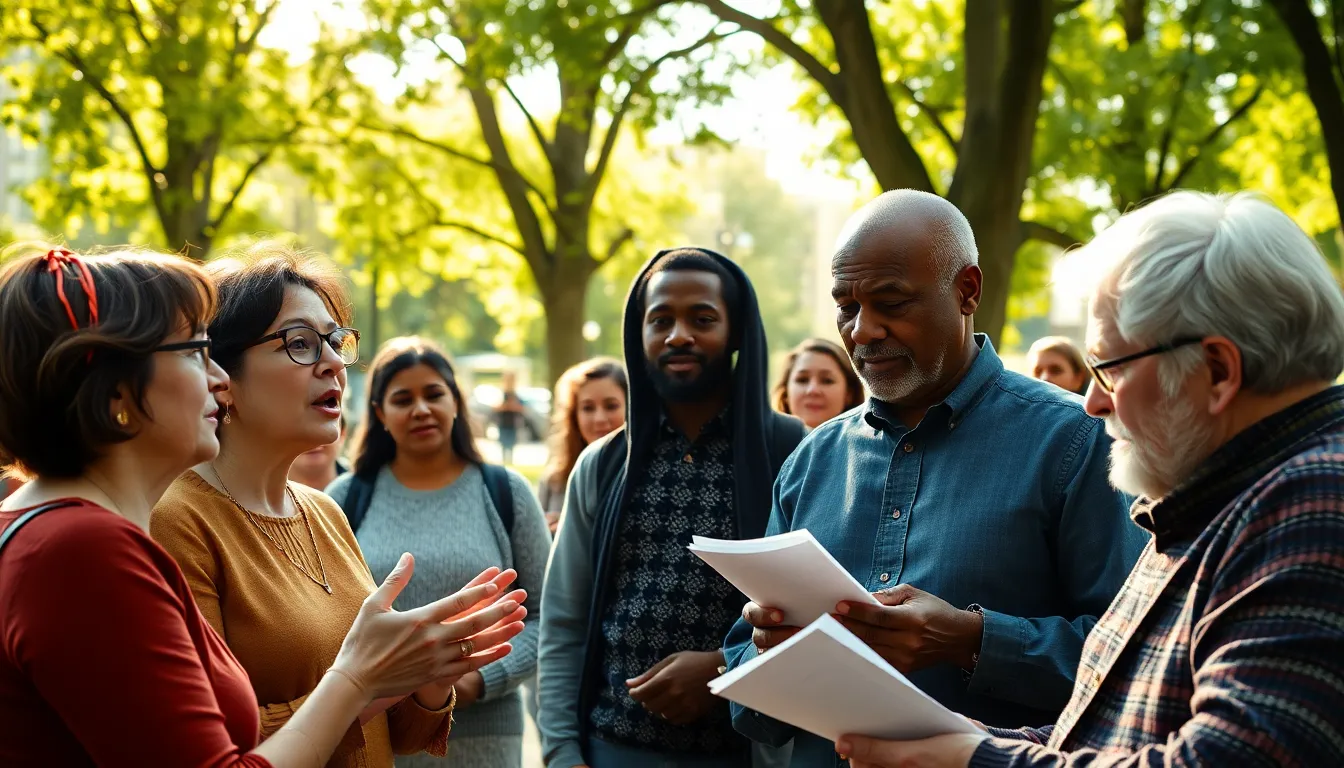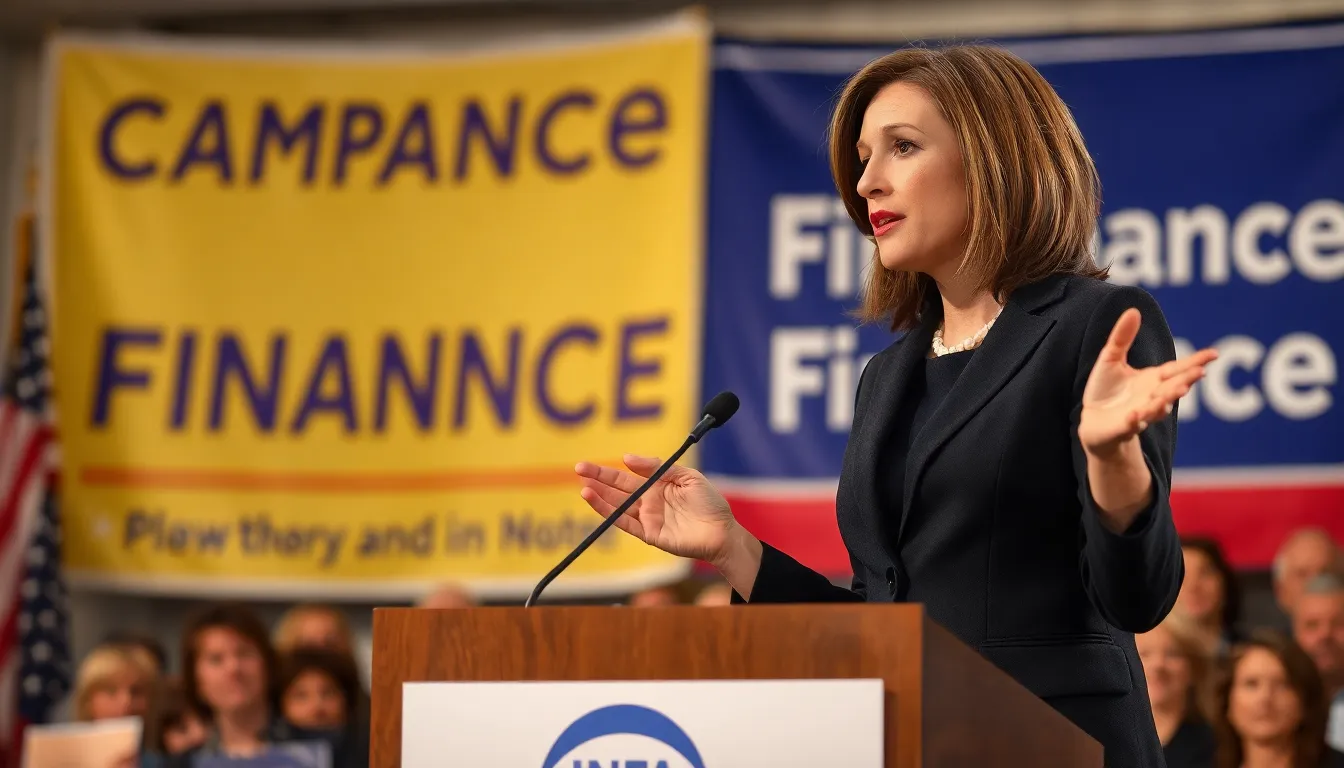Political parties in the American political system are like the peanut butter to democracy’s jelly—essential for a smooth, cohesive experience. Without them, the political landscape would resemble a chaotic buffet where everyone’s shouting their opinions but no one knows what to serve. These parties organize voters, simplify choices, and create a platform for debate, making them the unsung heroes of civic engagement.
Imagine trying to navigate a maze blindfolded. That’s what it feels like without political parties guiding the way. They provide structure, rally support for policies, and help citizens make sense of the complex world of governance. Whether you’re a die-hard Democrat or a staunch Republican, these parties shape the very fabric of American democracy, ensuring that everyone’s voice has a chance to be heard—even if that voice sometimes sounds like a cat in a karaoke bar.
Table of Contents
ToggleOverview of Political Parties
Political parties play a pivotal role in the American political system. They organize and mobilize voters around common interests and goals. Voters often find it challenging to make informed choices without party affiliation, as parties streamline options. Each party provides a platform that facilitates debate on important issues.
Political parties serve as a bridge between the government and citizens. They encourage political participation, ensuring that the public has a voice in governance. Through party structures, individuals can rally support around policies they believe in. These mechanisms ensure diverse viewpoints are represented in the decision-making process.
Additionally, political parties contribute to political stability. By grouping individuals with similar ideologies, they prevent fragmentation of the political landscape. Cooperation among party members promotes coherent policy-making. In turn, this cooperation fosters a more effective government.
Parties also play a vital role in candidate selection. They identify and support individuals who align with their values for public office. This aids voters in identifying qualified candidates, enhancing accountability. Ultimately, political parties form the foundation of effective democracy in the United States.
Political parties, thus, act as essential components that shape the political framework. Their influence extends beyond elections, permeating various aspects of governance and civic engagement. They help organize political ideas and streamline the democratic process, promoting a more engaged and informed electorate.
Functions of Political Parties

Political parties serve critical functions that enhance the American political system. They contribute to the organization of governance, simplify the voting process, and promote civic engagement.
Representation of Diverse Interests
Political parties aggregate various interests, ensuring a broader representation of society. They create platforms that invite individuals to express their views, facilitating communication between lawmakers and constituents. By incorporating a wide range of ideologies, parties ensure minority voices receive attention. This representation fosters inclusivity in discussions, influencing policy decisions. Voter representation becomes stronger as parties align with community needs, enhancing democratic participation and accountability.
Organizing Elections and Campaigns
Parties play a crucial role in structuring elections and overseeing campaign activities. They recruit candidates who reflect their values, streamlining the selection process for voters. Mobilizing volunteers and resources, parties coordinate grassroots efforts for outreach and voter support. Campaign strategies are developed through shared goals and messages, emphasizing critical issues among constituents. Additionally, political parties provide crucial funding and logistics support, ensuring candidates reach the electorate effectively. These frameworks help maintain order and coherence in the electoral process, reinforcing the system’s overall stability.
Political Parties and Governance
Political parties significantly influence the governance of the United States. They serve essential functions that ensure the political system operates smoothly and effectively for citizens.
Facilitating Legislative Process
Political parties streamline the legislative process. Party members often align their priorities, making it easier to draft, debate, and pass legislation. Legislators rely on party leadership for guidance, which enhances efficiency during sessions. When party cohesion exists, negotiating compromises becomes simpler, fostering a collaborative environment. Various platforms also play a key role in expressing legislative agendas, ensuring that elected officials stay committed to promised initiatives. Ultimately, political parties facilitate necessary communication among lawmakers, promoting an organized and focused approach to governance.
Influencing Policy Making
Political parties shape public policy significantly. They establish platforms reflecting party values, ensuring that elected representatives advocate for specific policy proposals. Contextualizing issues within party ideologies helps define the political landscape, allowing constituents to better understand candidate positions. Additionally, party members garner support for their initiatives by rallying constituents, providing a unified front in advocacy efforts. Lobbying and coalition-building are often strategic moves that political parties employ to advance their policy goals, emphasizing their influence on legislation. Political parties thereby become vital actors in determining the direction of American governance.
Challenges Faced by Political Parties
Political parties encounter various challenges that impact their effectiveness in the American political system. Notably, partisan polarization creates a divided electorate where bipartisan cooperation declines.
Partisan Polarization
Partisan polarization manifests as increased ideological extremes between political parties. This division often results in gridlock within legislative processes, as party members prioritize party loyalty over collaboration. Research indicates that bipartisanship has significantly decreased over recent decades, complicating consensus-building. Advocacy for compromise often meets resistance, hindering effective governance. This polarization can discourage voter engagement, as many individuals feel alienated by the prevailing conflicts. Citizens grow frustrated with the inability of parties to bridge gaps, ultimately undermining trust in the political process.
Voter Disenfranchisement
Voter disenfranchisement represents another significant challenge political parties face. Various systemic barriers exist, such as voter ID laws and limited access to polling places, which disproportionately affect marginalized groups. Data reveals that minority voters encounter obstacles that lower their participation rates. Political parties struggle to advocate for inclusive policies that enhance voter access. The impact of gerrymandering further complicates representation, as district maps often favor one party over another. Heightened awareness around these issues is vital for fostering equitable political participation. Overall, addressing disenfranchisement is essential for political parties to ensure a representative democracy.
Political parties are indispensable to the American political system. They not only organize and mobilize voters but also facilitate communication between citizens and their government. By providing structure and coherence, parties help ensure that diverse voices are heard and represented.
While challenges like polarization and disenfranchisement persist, the role of political parties in fostering civic engagement and accountability remains vital. Their ability to streamline the legislative process and shape public policy underscores their importance in maintaining a functional democracy. Ultimately, political parties contribute to a more informed electorate and a stable political environment, reinforcing the foundations of American governance.



